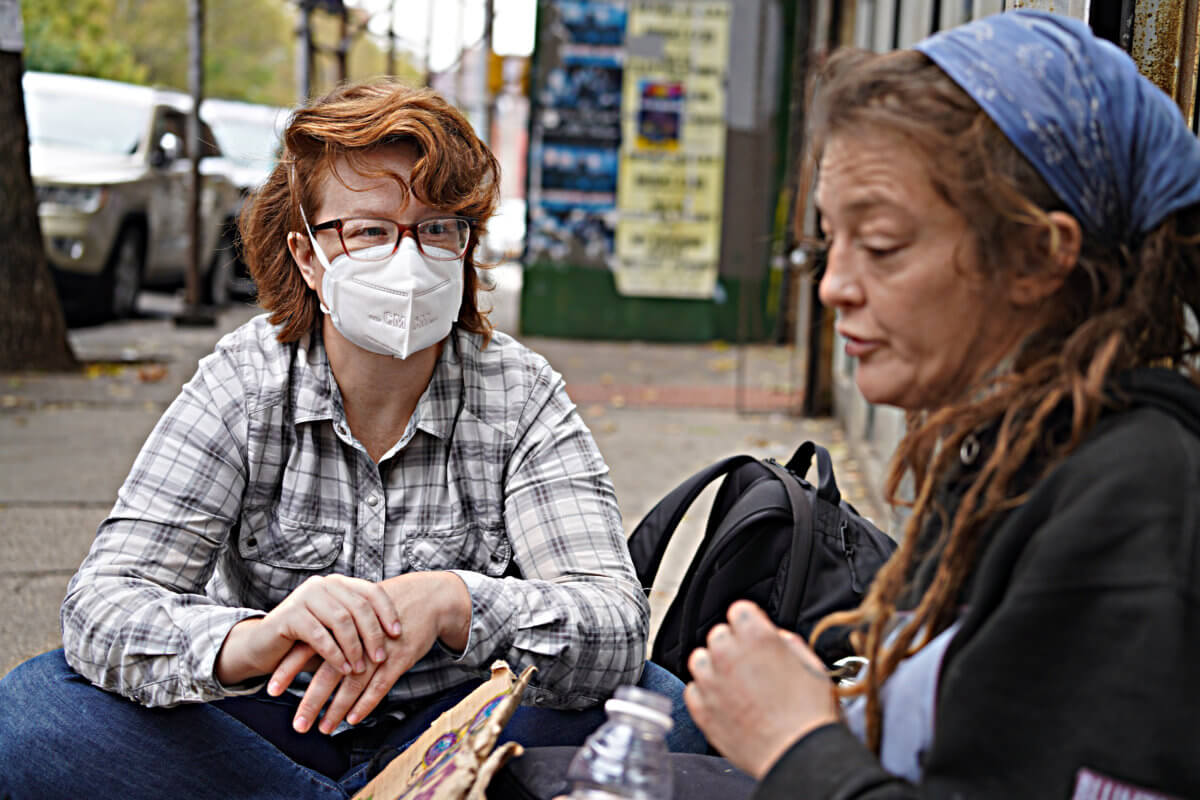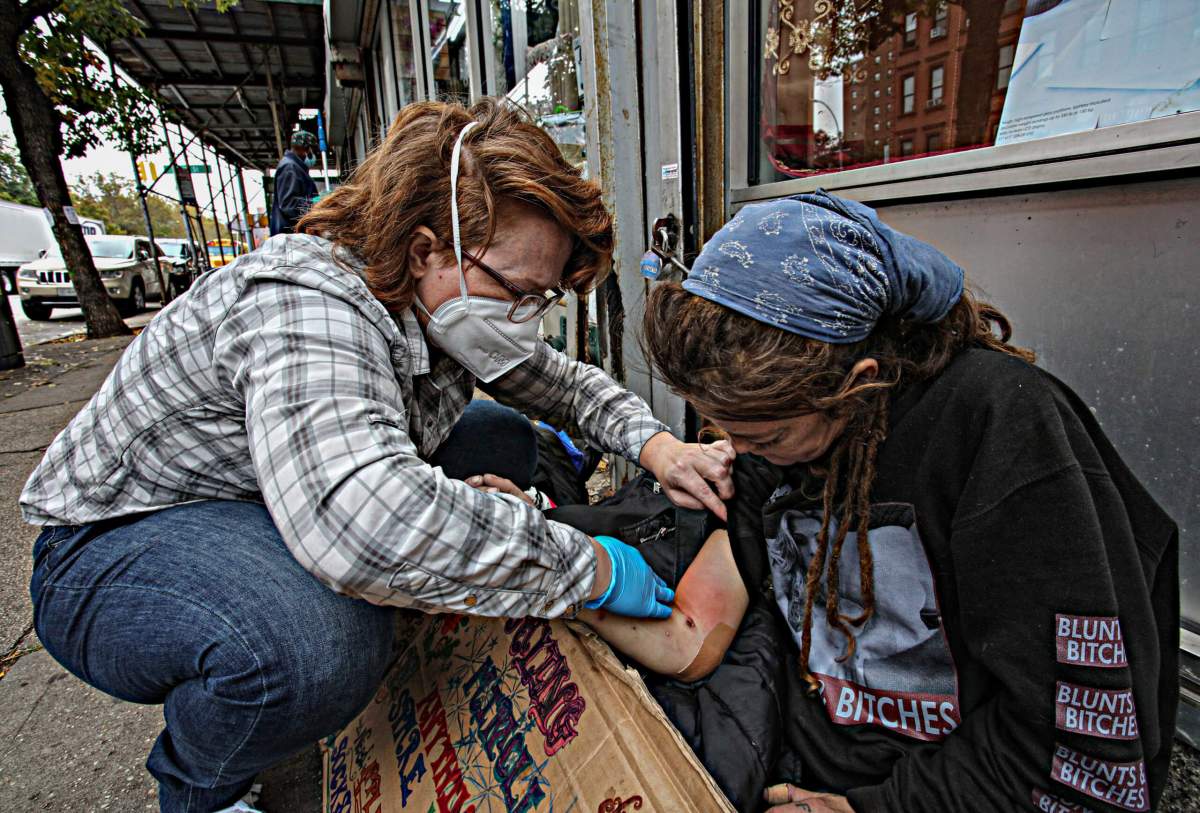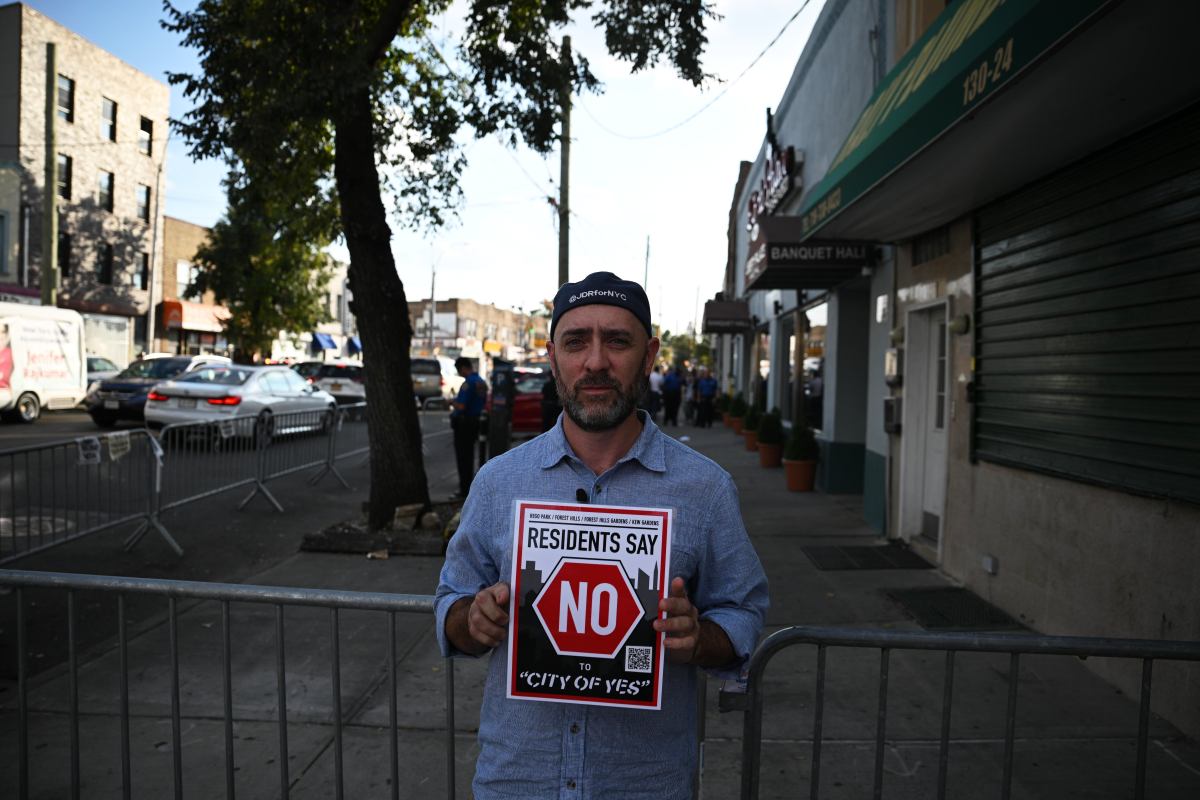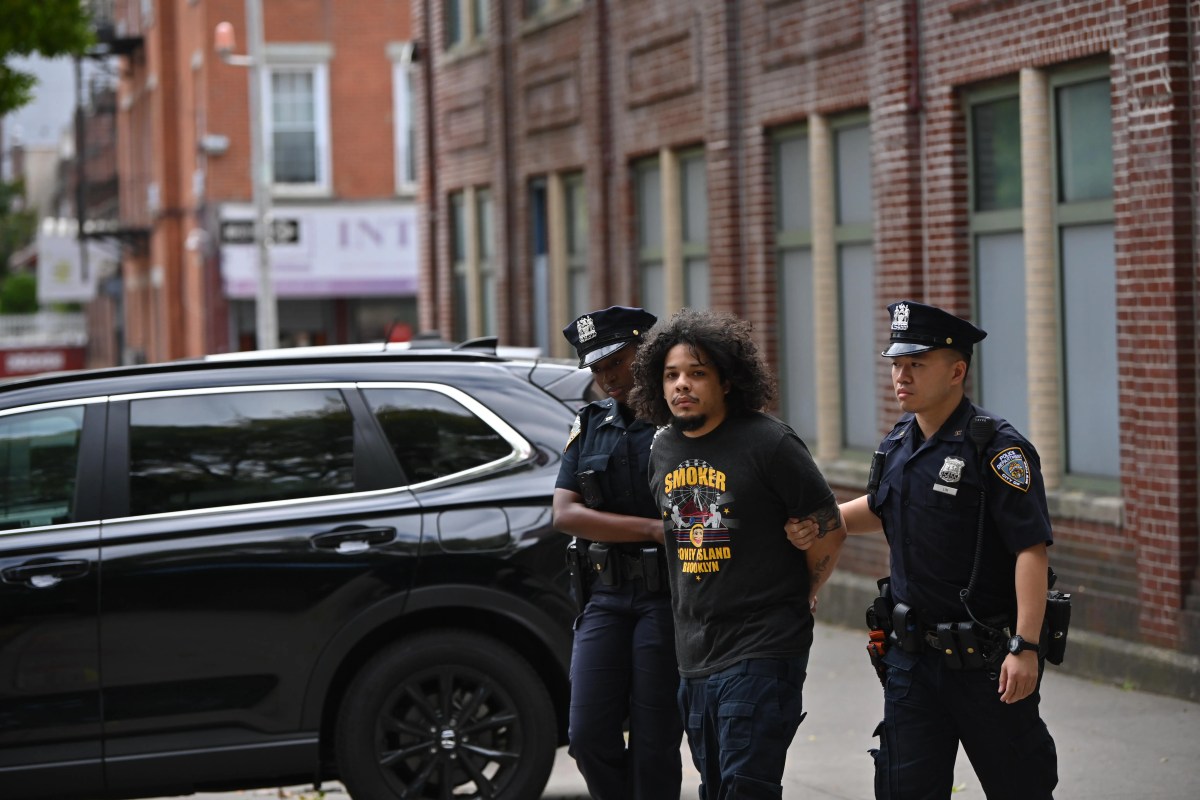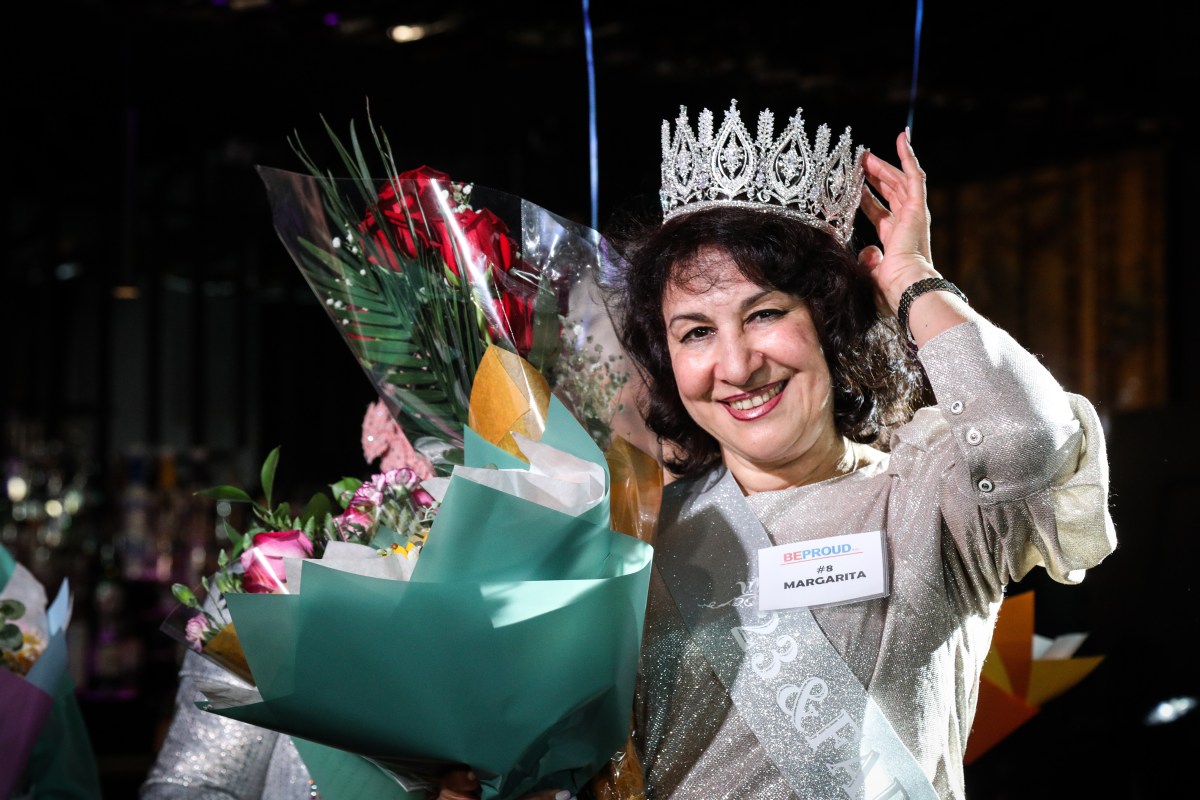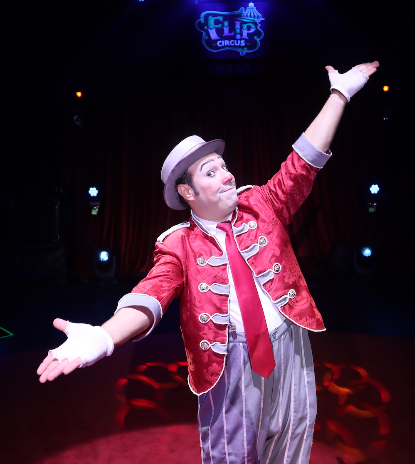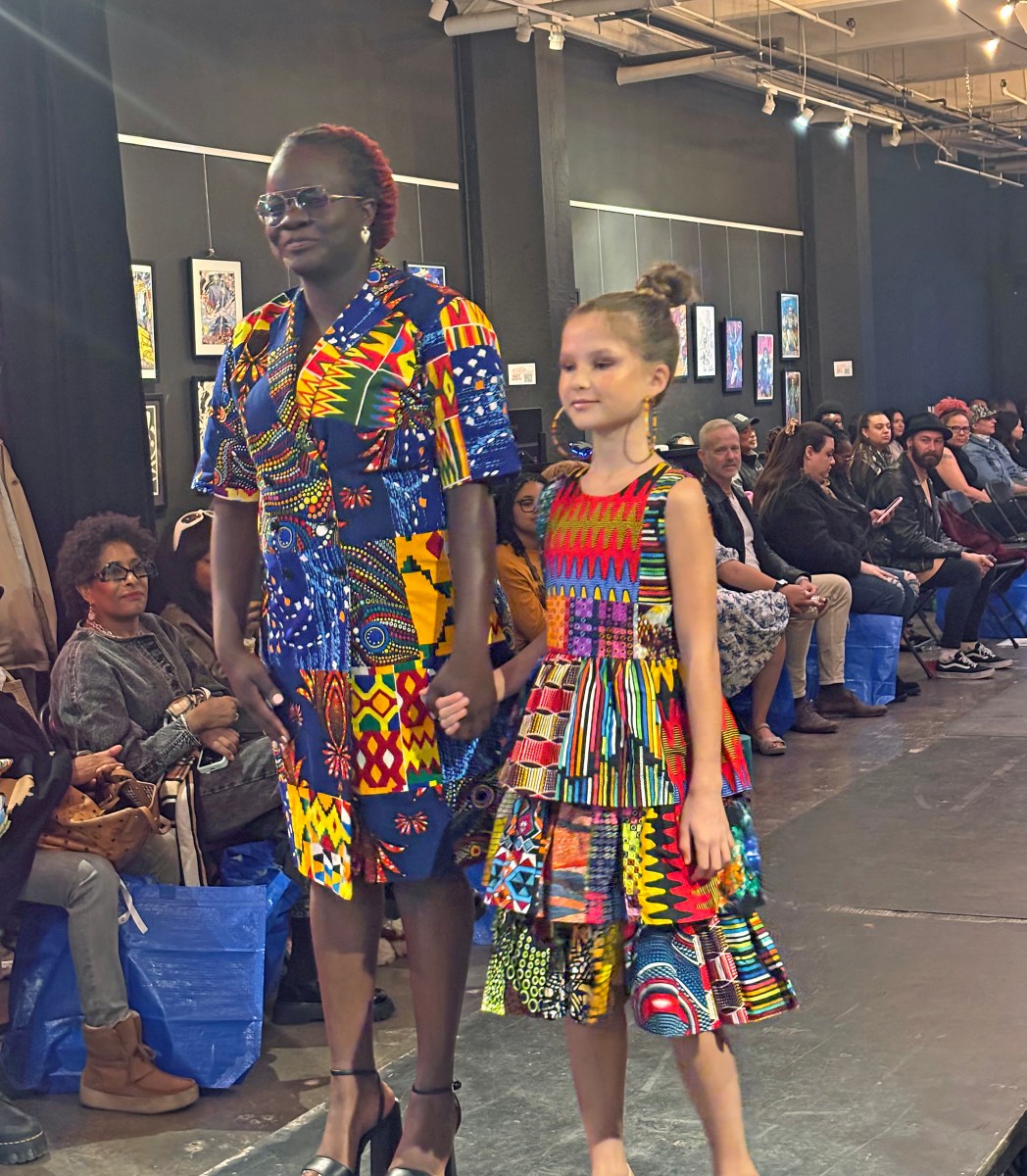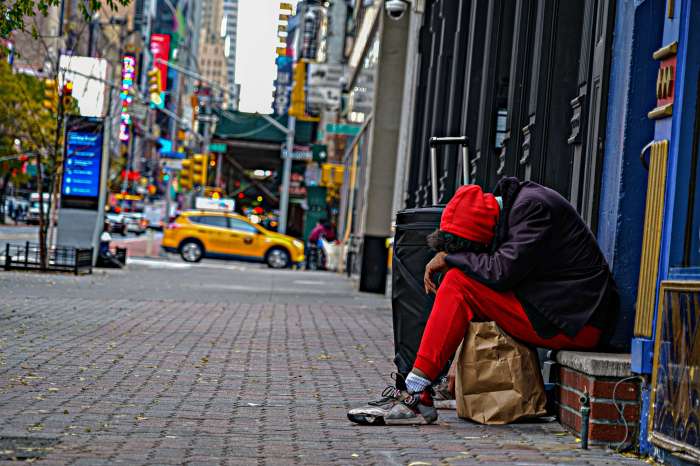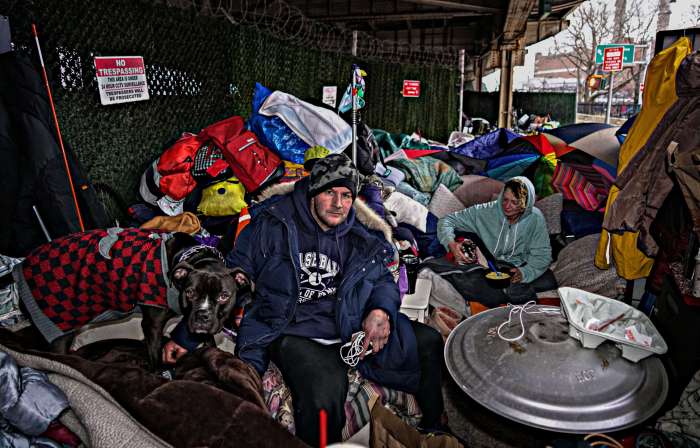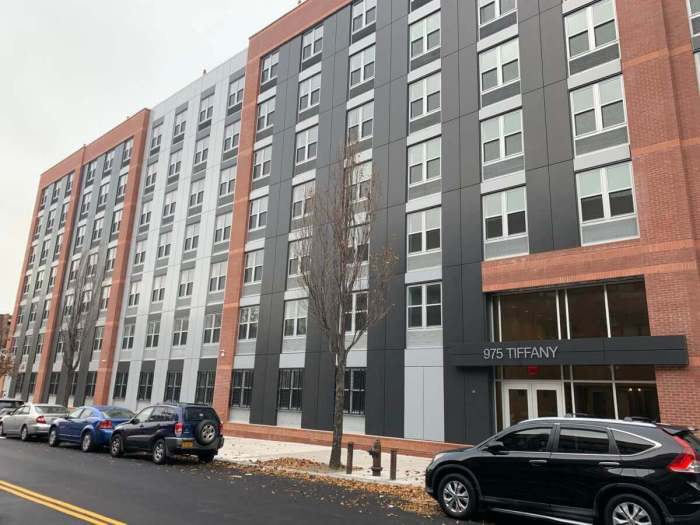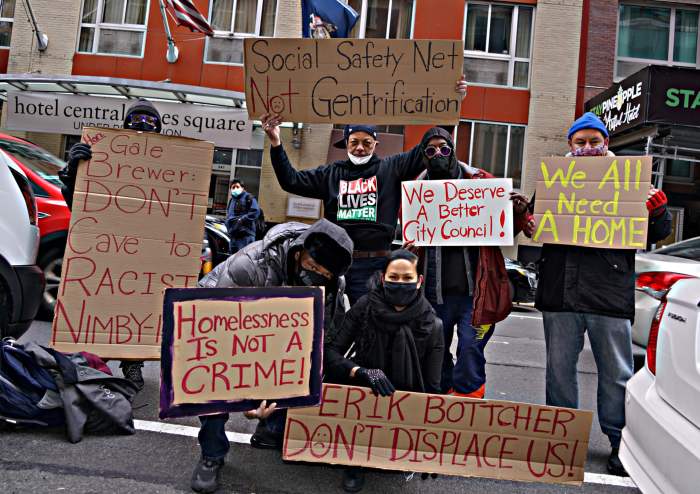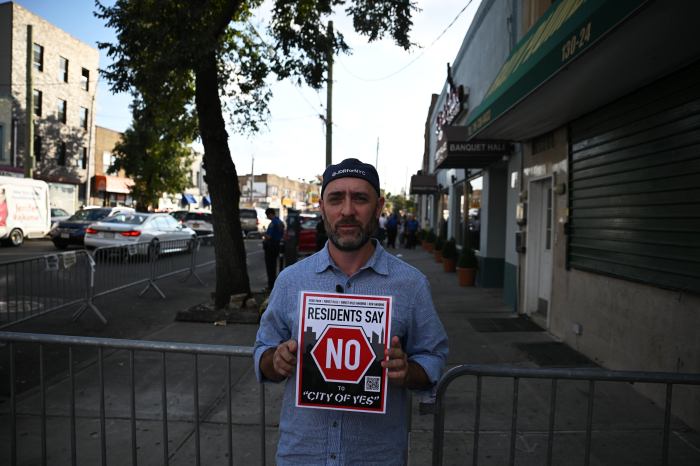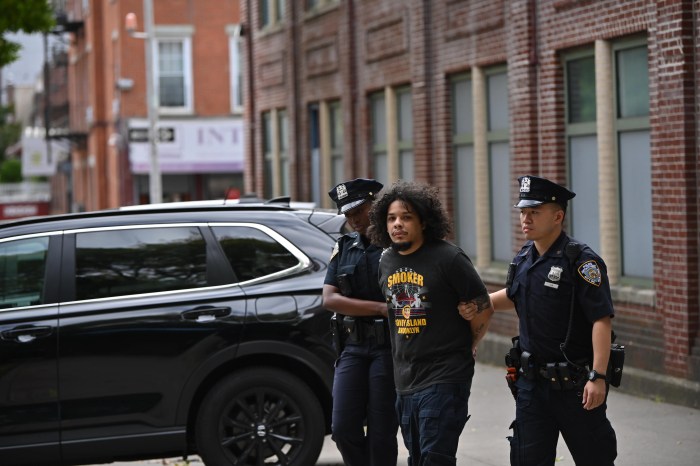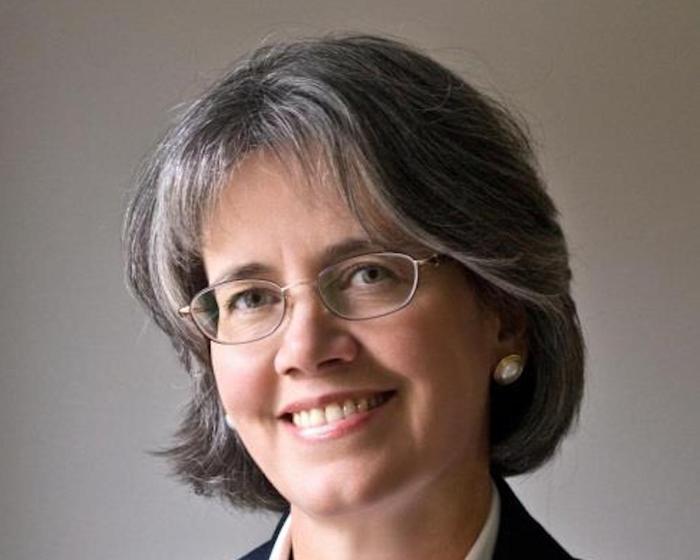Living rough on the street comes with all kinds of health risks. Sleeping beneath cardboard and atop thin blankets during both the hottest and coldest nights of the year can take a dreadful toll on the human body, and when the biggest concern on a person’s mind is when (or if) their next meal will come, a doctor’s visit is left low on the agenda.
This is where the Janian Medical Care of the Center for Urban Community Services (CUCS) prides themselves on their work.
Operating out of a clinic on 198 East 121 St. in Harlem, the healthcare workers also travel around the city in search of unhoused individuals who may need medical attention. As a one branch of CUCS, Janian employs nurses, nurse practitioners, and more who supply medical services to those in shelters and individuals who call the city streets home.
“We will frequent certain hotspots. If it is a group of people in Tompkins Square Park for example, we will go to that spot in some kind of semi-regular way. But we mostly get referred people by the outreach teams who have already had some contact with that person,” Chief Medical Officer Dr. Van Yu explained.
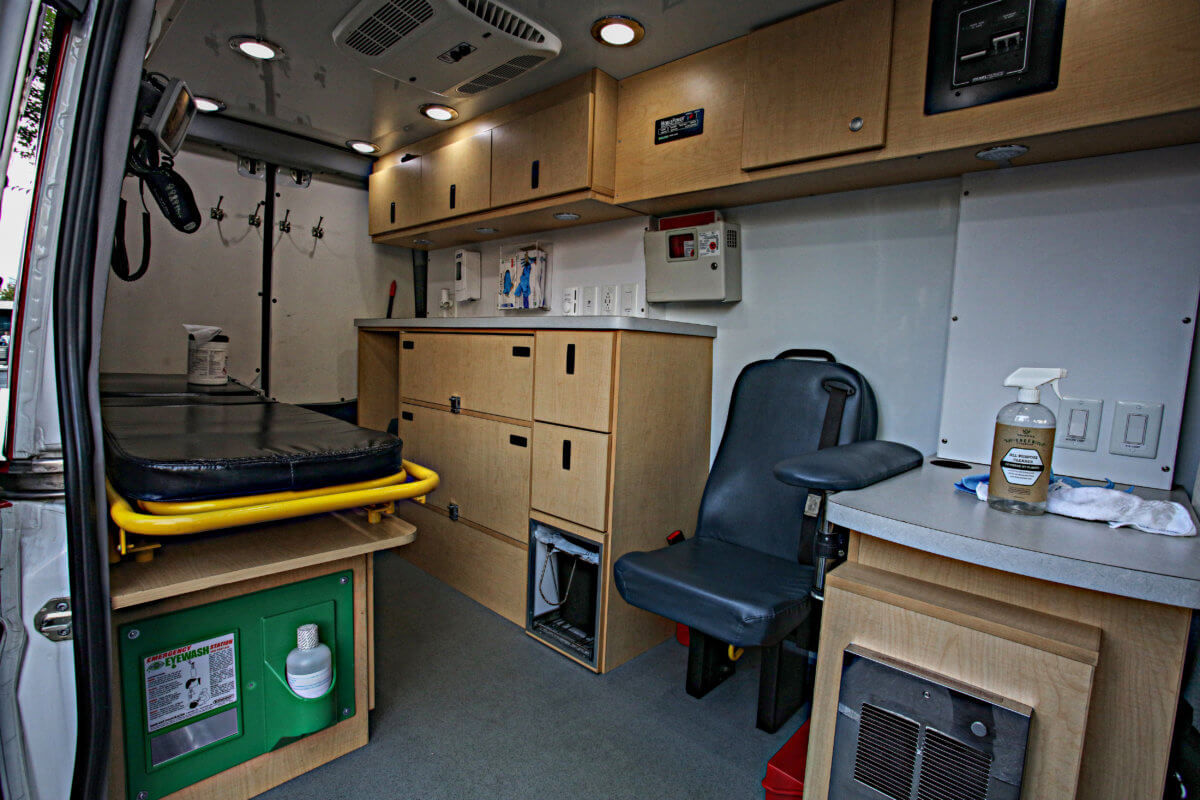
amNewYork Metro joined the street med team on Oct. 25 as they rode through Harlem offering medical services. The team operates out of a specialized van that serves as a mobile examination room where individuals can be treated in a private, sterile environment.
Led by an outreach team member, nurse practitioner Bonnie Coover and driver Justice Marin followed in the van to locations where they believed their rough-sleeping clients were staying.
During the ride, Coover explained, trust between the team and those in need is paramount — without which many homeless individuals refuse to receive aid.
“There’s varying levels of trust, whether they’re open on the first visit to draw blood, listen to their heart, some people are like that first thing. Other people it takes a long time, a long time to earn that trust. A lot of people have had anywhere from a bad experience to trauma with the healthcare system, especially a lot of the people that we see who have serious persistent mental illness, you know, they may have been hospitalized against their will. So depending on how they feel about medical people in general, it takes us time to build up that trust,” Coover said.
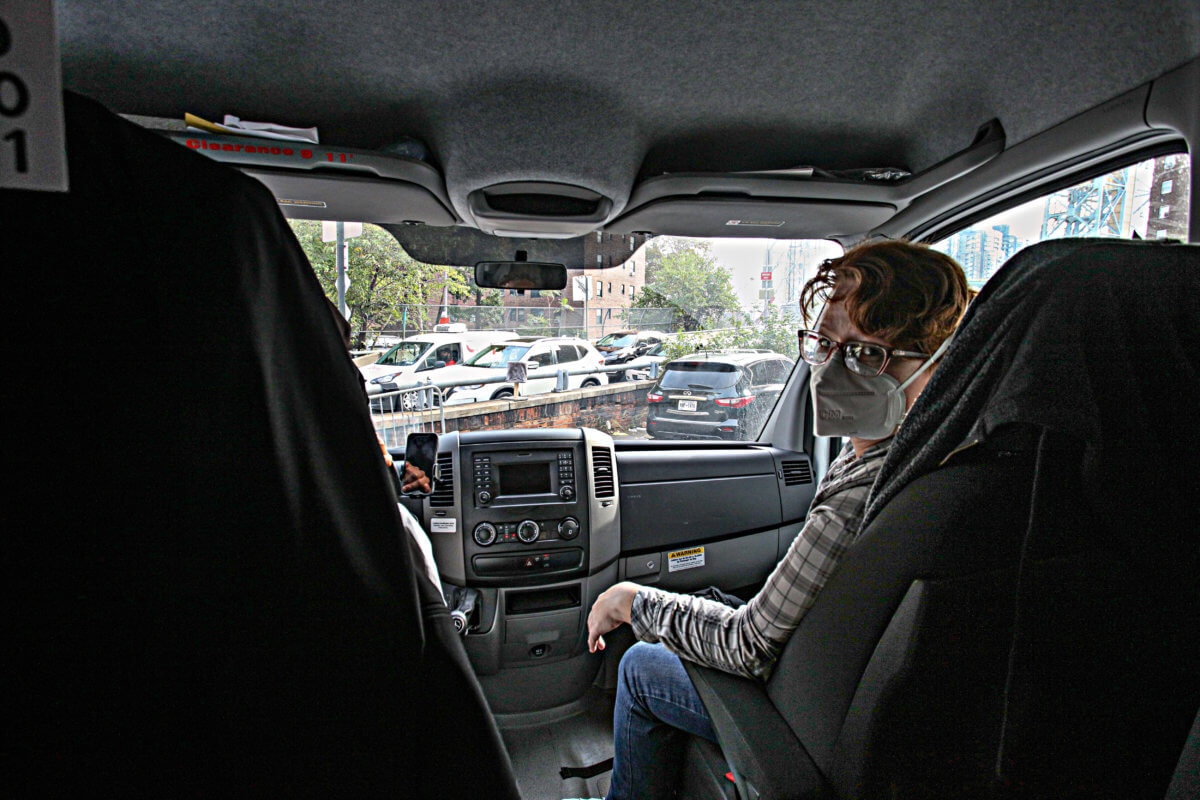
The first attempt at a wellness check showcased just how tricky it can be to visit patients without a permanent address.
Coming across an empty encampment, the team was forced to move on. However, Irving, a man who has claimed a small patch of a Harlem sidewalk, was found presiding over his meager belongings.
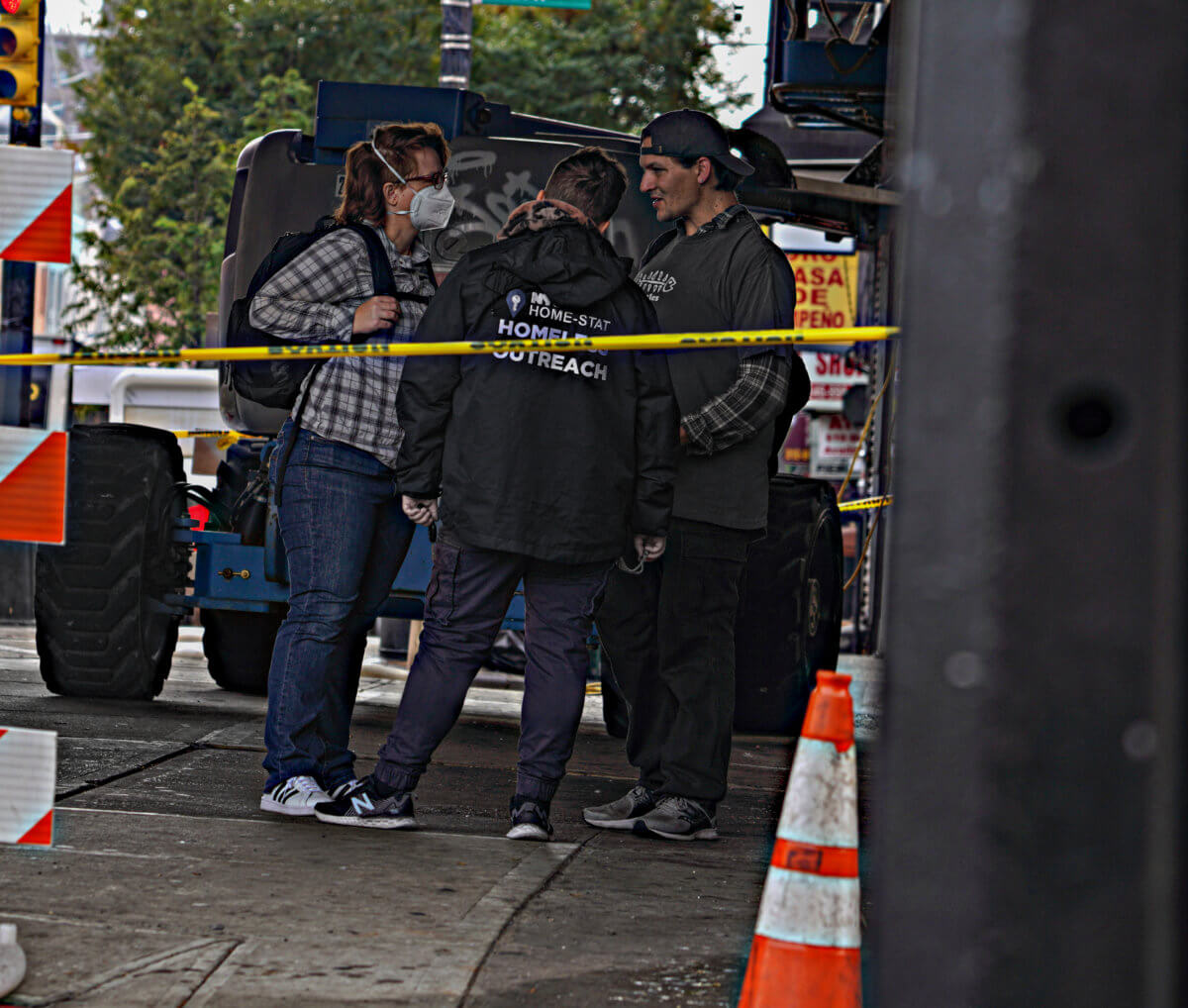
“They are very caring, very caring, and they can relate to you, really, I’ve never had anybody I didn’t like,” Irving explained after stepping out from a brief exam.
Although he says life on the cold, damp streets is difficult, he is proud of the little home he has constructed out of cardboard and other found objects.
“You get used to it. You either become a victim or a survivalist — I am a survivalist. I got like a house over there. I don’t want to be out here, but I will make the best of it,” Irving said.
During the trip to find the next patient, Coover opened up regarding the emotional toll it takes to aid those struggling.
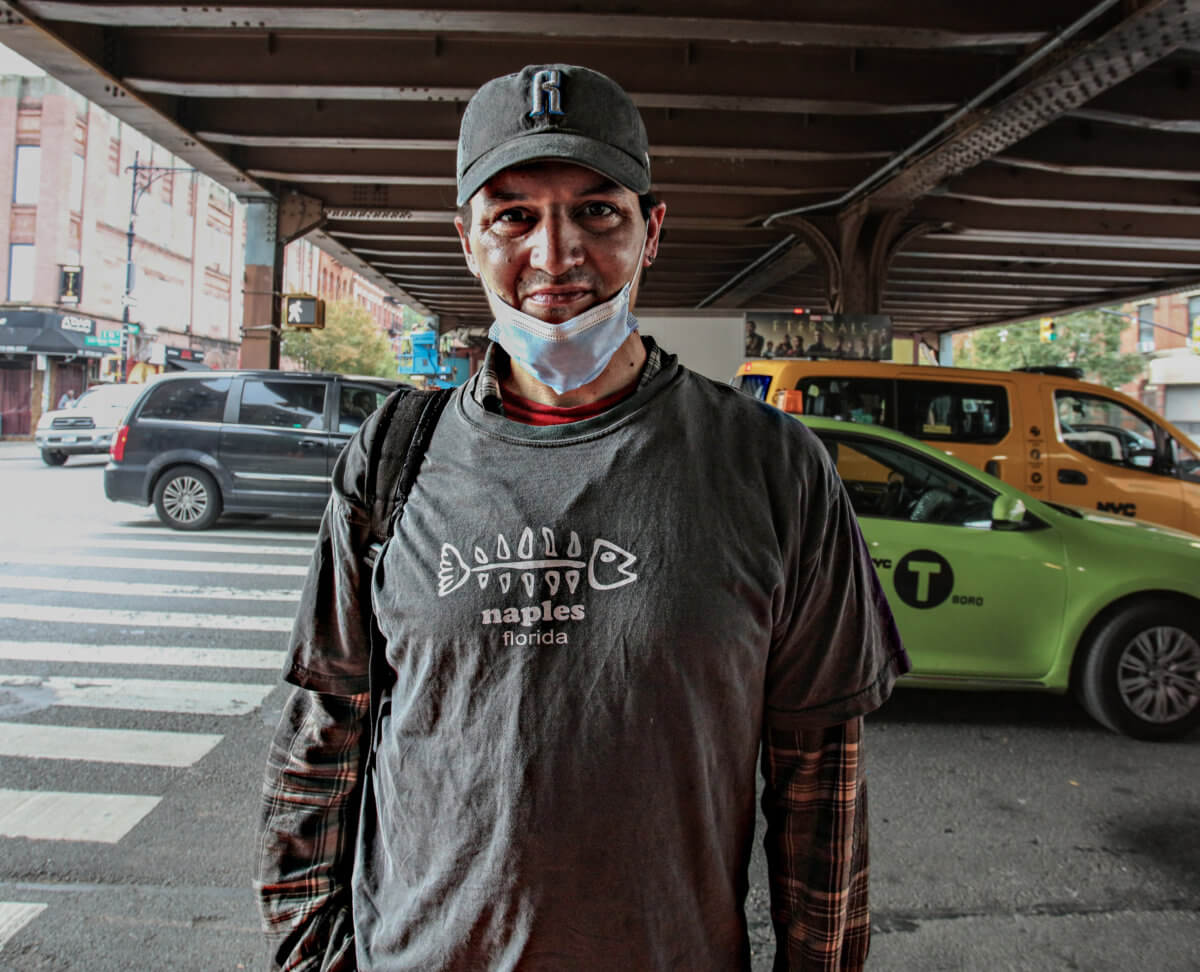
“Yeah, it is hard. Yeah, it is hard when people are going through serious medical conditions or, say, I think they should go to the hospital, they don’t want to go to the hospital. And then I do sometimes go home and worry about people, but I try to remind myself: They have their autonomy,” Coover told amNewYork Metro.
Rachel was the final patient seen on the ride along.
Now 42, Rachel, a punk rocker, has been living on the street off and on since she was an early teen. Like many who have found themselves without a roof over their heads, her story is rife with heartache. Despite her rather affable and approachable nature, Rachel admits she has spent time at Rikers Island and is an active drug user.
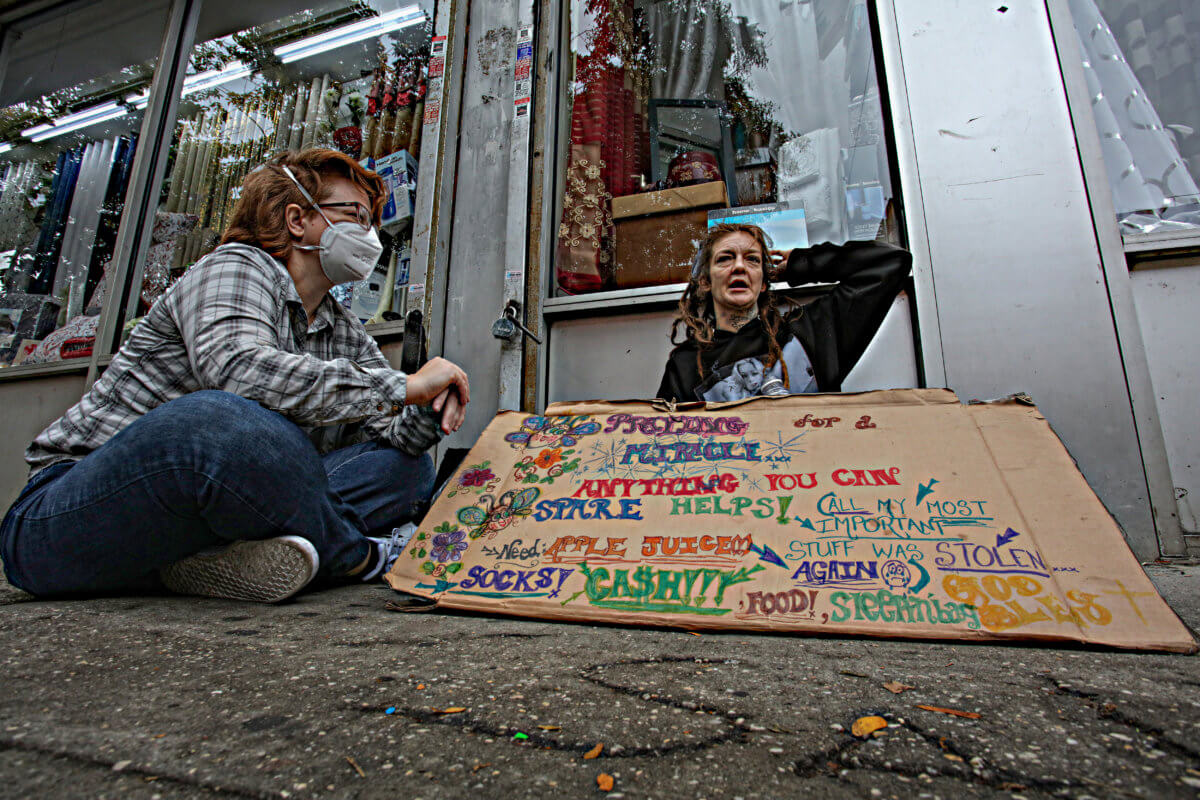
“When you’re sick. People say I’ll do anything. No I’m not that bad,” Rachel said, explaining she was clean but fell off the wagon when her children were taken from her. She also spoke of a recent tragedy. “My boyfriend just passed away. We both had liver failure. He was there at the hospital every day. And then one day he just didn’t show up and I knew there was something, he just didn’t show up.”
Understanding that Rachel could be in the vicinity of those who could overdose, Coover gave her the gift of life. Supplying the rough sleeper with a nasal spray known as Narcan that is used to treat a patient who has lost consciousness due to drug use, for CUCS this is all about harm reduction.
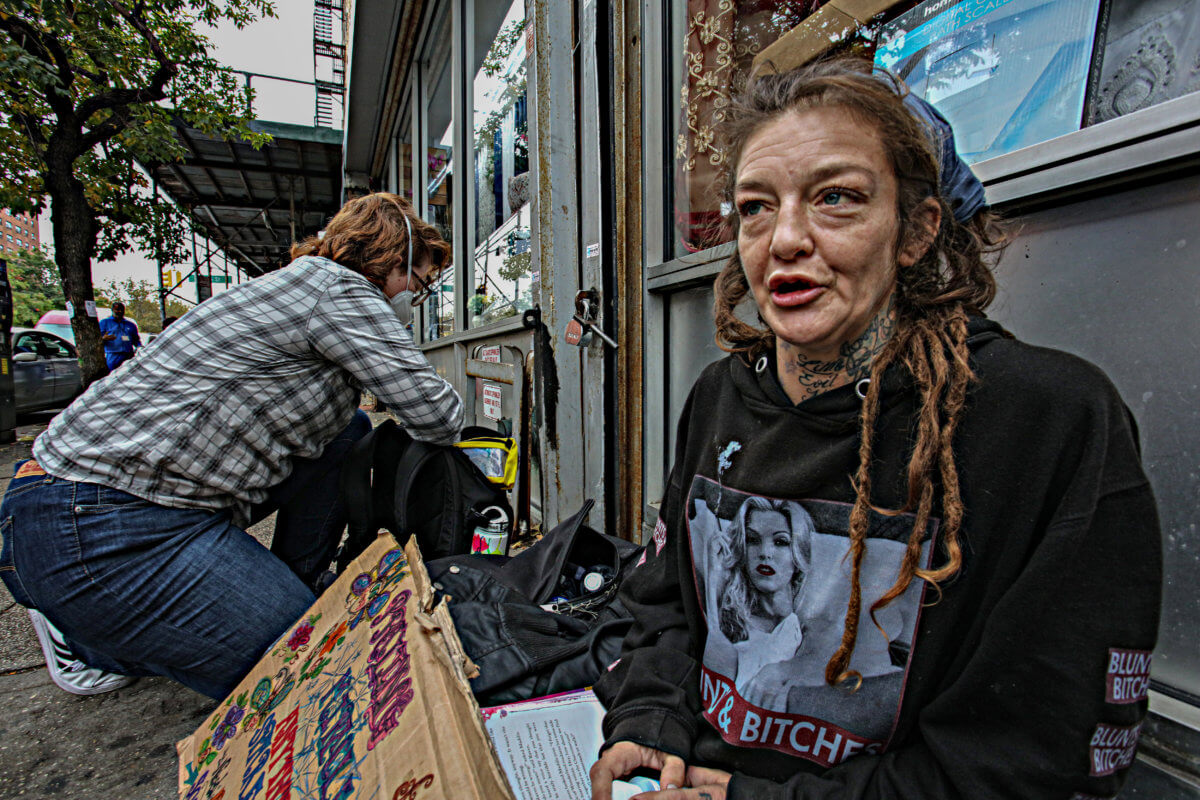
Suffering from addiction and homelessness, Rachel says she has been “lazy” when it comes to seeking medical aid. After over 40 minutes of discussing her life, Rachel revealed an infected arm that immediately required care. Coover handed her grateful, unhoused patient antibiotics.
“It’s not just a medical, they help you get places to stay. They talk to you,” Rachel said, explaining her appreciation for the team.
For Coover, the time given to a patient is likewise a vital aspect and refers back to the trust factor. Coover was forced to spend nearly an hour simply conversing before a medical issue could be unveiled.
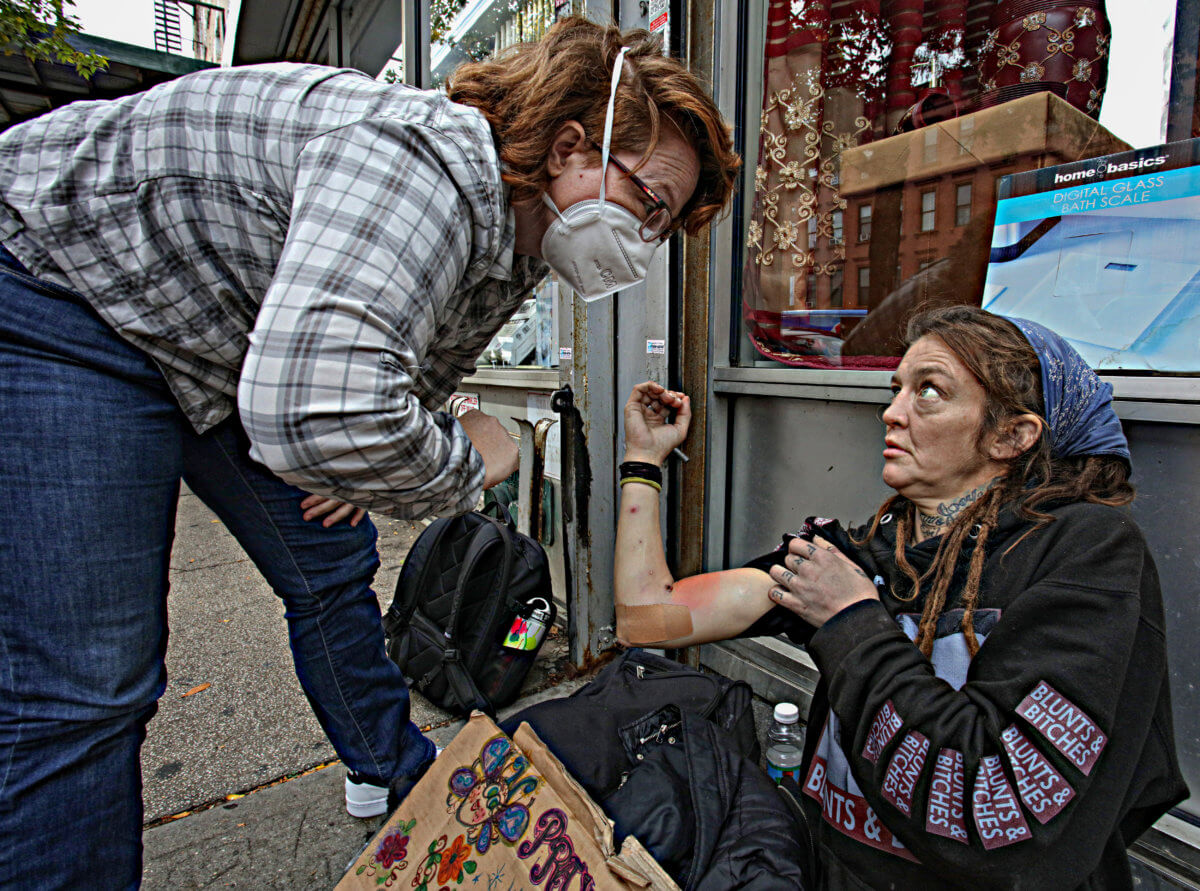
“I do spend a lot of time talking to people. I would say that’s not that uncommon,” Coover said.
However, Janian Medical Care can only do so much. As a relatively small team they work remains cut out as more New Yorkers find themselves resting on the unforgiving concrete pavements and dwindling parkland.
